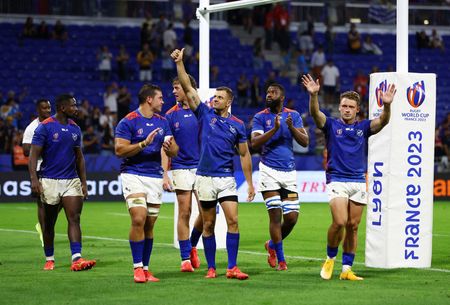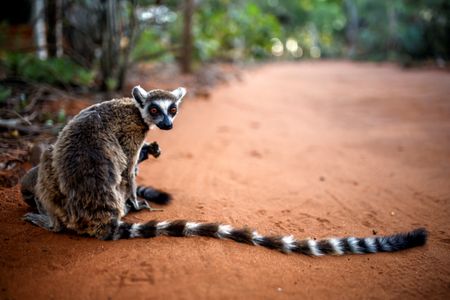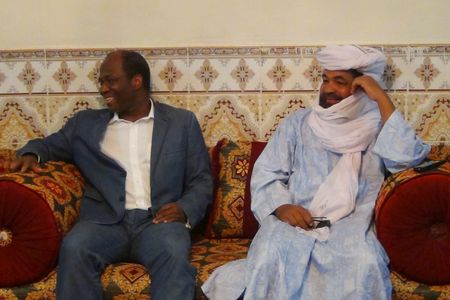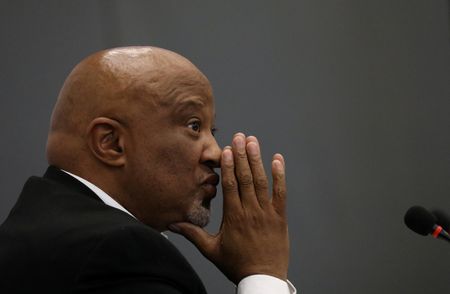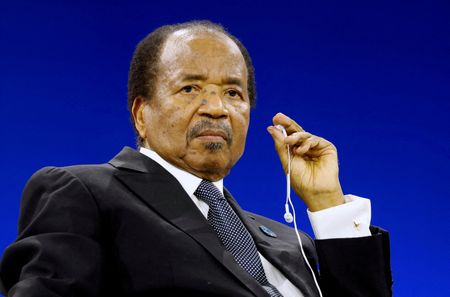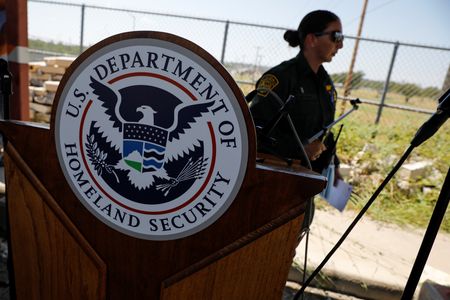By Nick Said
CAPE TOWN (Reuters) -Namibia and Zimbabwe contest the final of the Rugby Africa Cup in Kampala on Saturday, where the winner will earn a place at the 2027 Rugby World Cup in Australia and represent a continent with big ambitions in the game but scarce resources to fulfil them.
Namibia have appeared at every World Cup since 1999, while Zimbabwe contested the first two in 1987 and 1991, but have not been back since.
They beat Namibia 32-10 last year, suggesting their chances are good.
Namibia’s success at reaching the global showpiece event is largely down to their exposure to the South African rugby ecosystem that is among the best in the world, helping to polish the country’s rough diamonds.
There is no shortage of passion for the game across Africa, from Morocco and Algeria in the north, Senegal and Ivory Coast in the west, to Kenya and Uganda in the east.
Madagascar sees crowds of up to 30,000 supporters at domestic fixtures, sometimes more than football, which still reigns supreme as the number one sport on the continent.
But taking this enthusiasm and turning it into developing teams that can be competitive on a global scale beyond South Africa’s Springboks is a huge challenge.
“People often ask, ‘Why does only Namibia qualify for the World Cup?’,” Rugby Africa president Herbert Mensah said in an interview with Reuters.
“The truth is that sport is big business. Countries like England receive over 150 million pounds ($201 million) annually to fund their national rugby programs.
“In contrast, the entire continent of Africa, excluding South Africa, receives about $2 million. That disparity limits what we can do.
“We have over 40 Rugby Africa member nations. Air travel alone, say, from Dakar to Madagascar, can cost upwards of 2,000 dollars (per person). Development isn’t just about passion, it’s about resources.
“We need funding to sustain age-grade competitions, develop women’s rugby, and run grassroots programs continent-wide. Right now, that infrastructure is still lacking.”
But it is not all doom and gloom. Mensah, who is a member of World Rugby’s Executive Board, says African governments are starting to see the value in investing in the game beyond the millions of dollars they generally put into football annually.
“We’ve seen massive buy-in recently,” he said. “Uganda’s government committed over 3 billion shillings ($838,457) to host the 2025 Rugby Africa Cup. Morocco, Ghana and Ivory Coast have all supported events financially.
“Morocco allocates more than 1% of its GDP to grassroots sport, including rugby. There’s real momentum.
“This shows we’re not solely reliant on World Rugby. The more governments invest, the more attractive we become to sponsors. It’s a multi-step strategy, first governments, then sponsors. That’s how we scale the game.”
($1 = 0.7465 pounds)
($1 = 3,578.0000 Ugandan shillings)
(Reporting by Nick SaidEditing by Toby Davis)

